California’s workers’ compensation system exists to provide economic relief to individuals who suffer injuries while performing their job duties. Every employer in California must carry workers’ compensation insurance, and this type of insurance coverage functions very similarly to most other insurance policies. However, every workers’ compensation insurance carrier offers various levels of coverage. The extent of coverage typically comes down to what an employer is willing to pay, and some employers have more expansive workers’ compensation insurance coverage than others.
If you are hurt at work and file a workers’ compensation claim, you will likely receive two types of compensation if your claim is approved. First, your employer’s workers’ compensation insurance policy will likely cover the cost of any medical treatments you require to reach maximum medical improvement. This includes immediate medical expenses like hospital bills and long-term treatment costs, surgical fees, prescription costs, and many other related medical expenses. Second, you will receive disability benefits based on the severity of your injury and how long you will be unable to work.
How Are Disability Benefits Determined?
If you sustain an injury at work, you should immediately report the injury to your supervisor. Once you report the injury, they will provide you with the forms and other materials you may need to file your workers’ compensation claim. Your employer should also make an official report of the injury for their records. In addition, the employer’s workers’ compensation insurance company will provide you with a list of local doctors you can visit for treatment. You may see any doctor in an emergency, but once your condition stabilizes, you must see a workers’ compensation doctor for an examination.
The workers’ compensation doctor will assign you a disability rating based on your injury’s severity and prognosis for long-term complications from the injury. This disability rating generally dictates how long you can receive workers’ compensation benefits. Almost all disability benefits in California are paid temporarily, lasting until claimants reach maximum medical recovery. California law limits temporary disability benefits to 104 weeks or two years, but it’s possible to spread these payments out over a five-year term.
Can I Qualify for Permanent Disability Benefits?
If you suffered a catastrophic injury that resulted in permanent damage, you might qualify for more expansive workers’ compensation benefits than standard temporary disability benefits. Long-term and permanent disability benefit availability comes down to your employer’s insurance carrier. An expansive workers’ compensation insurance policy may provide permanent disability benefits, but the insurance carrier is likely to restrict eligibility for permanent disability benefits in several ways. You should expect a complex claim process if you believe your situation qualifies for permanent disability benefits.
In many cases, an injured worker who has suffered permanent harm from a workplace injury may be able to claim workers’ compensation benefits for a maximum of 104 weeks. If their employer’s insurance carrier does not offer permanent disability coverage, they must transition to Social Security disability benefits. Some policies may allow this limit to extend to 240 weeks in response to severe injuries, such as third-degree burns, crushing injuries, and lung diseases. California law does not require employers to purchase long-term or permanent disability coverage; employers are only legally obligated to purchase short-term disability coverage. Some employers invest in additional workers’ compensation coverage to attract and retain high-performing talent.
How Much Can I Obtain in Benefits?
In most cases, workers’ compensation pays up to two-thirds of the claimant’s average pretax gross weekly wage in disability benefits. Once a claim is approved, the claimant will receive weekly disability checks until they reach maximum medical improvement. This may seem somewhat limited in scope, especially after a severe injury. Working with an experienced workers’ compensation attorney is the best way to maximize your benefits and overall recovery after a workplace injury.
Depending on how your accident occurred, you may have grounds for legal action beyond a workers’ compensation claim. For example, if a third party at work hurts you, you would have the right to file a workers’ compensation claim to recover medical expenses and a portion of your lost income until you recover. However, because the third party caused your accident, you could hold them responsible for any damages that workers’ compensation can’t cover. You could file a civil claim against the third-party seeking compensation for lost income not provided by your workers’ compensation disability benefits and your pain and suffering.
In the event you qualify for multiple disability benefits programs, such as workers’ compensation in addition to Social Security benefits, it’s important to consult your workers’ comp attorney to determine how these benefits interact. In most cases, receiving one type of disability benefit will limit your ability to claim other types of disability benefits.
What Happens When My Benefit Period Ends?
If your employer’s workers’ compensation insurance company approves you to receive disability benefits, they will notify you how long these benefit payments will continue. You may need to attend regular checkups with a workers’ compensation doctor so they can monitor your recovery and verify that you still qualify to receive benefits. For example, you may be offered the full 104-week term of disability benefits, but you are expected to return to work if you reach maximum medical improvement before the 104 weeks conclude. If you can return to work but fail to do so, you could face criminal fraud charges.
Your doctor will provide you with a “return to work” estimate based on your condition. The doctor will estimate when you will reach maximum medical improvement and inform you when to expect to return to work. However, if your injury caused any permanent or long-term damage that prevents you from returning to your previous position, you may need to accept alternative work, or your employer may need to alter your responsibilities to accommodate your condition. If your doctor provides your employer with instructions to account for the damage from your injury, the employer must abide by these instructions. Failure to do so or firing an employee rather than providing reasonable accommodations can result in criminal penalties for the employer.
If you have concerns about an impending workers’ compensation claim or if your benefit period is about to expire and you believe you need to continue receiving benefits, an experienced Orange County workers’ comp attorney is the best person to consult in these situations. Contact Pratt Williams today to schedule a consultation with our team to find out how to help you navigate the legal aftermath of a workplace injury.





